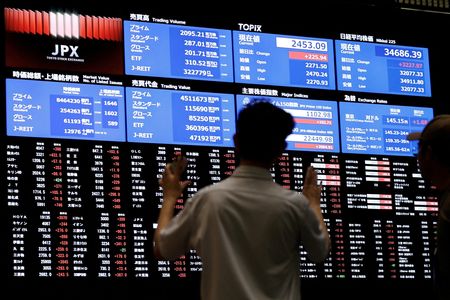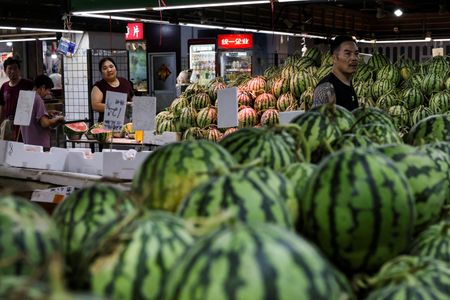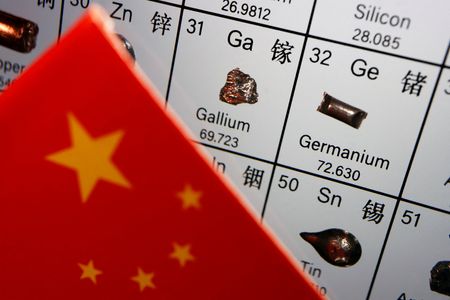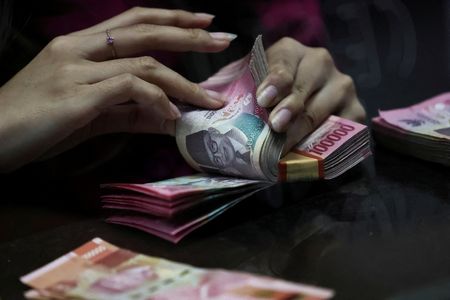By Jamie McGeever
(Reuters) – A look at the day ahead in Asian markets.
World markets are at a delicate juncture as a string of unexpectedly soft economic indicators intensify U.S. growth concerns, just as rising global trade tensions and geopolitical uncertainty are already clouding the investment landscape.
Stocks are feeling the heat and the dollar is under pressure too, while safe-haven assets like Treasuries and gold – especially gold – are attracting strong demand.
Investors on Monday initially welcomed Germany’s election result and gave a thumbs up to the new government’s ‘pro-growth’ policies, but the early bounce in Europe faded and Asian bourses were a sea of red.
Wall Street managed to erase some losses after U.S. President Donald Trump said G7 nations are united in their resolve to see an end to the Russia-Ukraine war, and that he and Russian President Vladimir Putin are in “serious discussions” about achieving that goal.
But Trump later repeated his commitment to slapping tariffs on imports from Canada and Mexico soon, and stocks stumbled again.
The Asian calendar on Tuesday includes an interest rate decision from the Bank of Korea, trade figures from Thailand and Hong Kong, and Taiwanese industrial production figures for January.
Economists expect the BOK to cut its key interest rate by 25 basis points to 2.75% on Tuesday, after unexpectedly standing pat last month as policymakers waited for domestic political turmoil to stabilize before easing further.
Economists polled by Reuters expect Tuesday’s cut to be followed by a further 50 points of easing this year. Money markets are a little less dovish, pricing in only two full quarter point cuts this year.
Industrial production in Taiwan ended last year on a high, boosted by seasonal factors and perhaps firms accelerating production ahead of potential U.S. tariffs. The 20% year-on-year rise in December was the fastest growth in five years, and is unlikely to be repeated in January.
The bigger issue for markets right now, however, is the deterioration in U.S. economic numbers. Having convinced themselves that the ‘soft landing’ was assured, investors are now entertaining the possibility that the economy may be in the early stages of rolling over.
Citi’s U.S. economic surprises index is now negative, and the lowest since the Fed kicked off its easing cycle with a 50-basis point cut last September. It has been mostly falling since the November presidential election.
Two more quarter-point cuts from the Fed this year are now fully priced into the U.S. rates futures curve, and options market activity may also be pointing in the same direction. S&P 500 option volumes hit an all-time high of 4.74 million contracts on Friday, according to CBOE, with demand for ‘puts’ rising.
Here are key developments that could provide more direction to Asian markets on Tuesday:
– South Korea interest rate decision
– Taiwan industrial production (January)
– BoE, Fed, ECB policymakers speak at BoE conference
(By Jamie McGeever, editing by Bill Berkrot)











